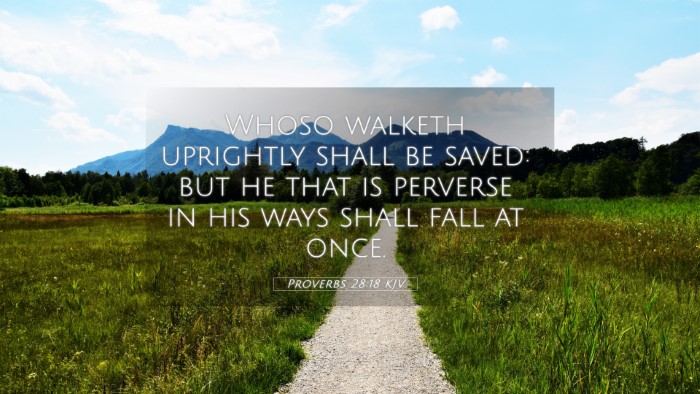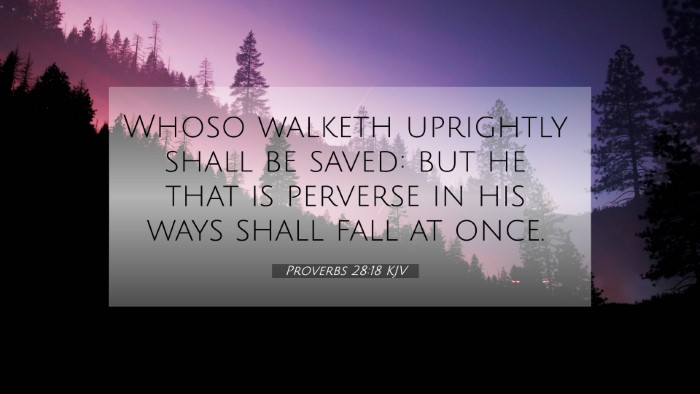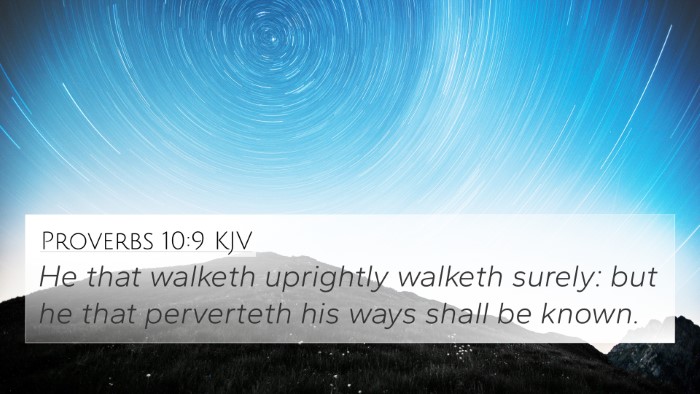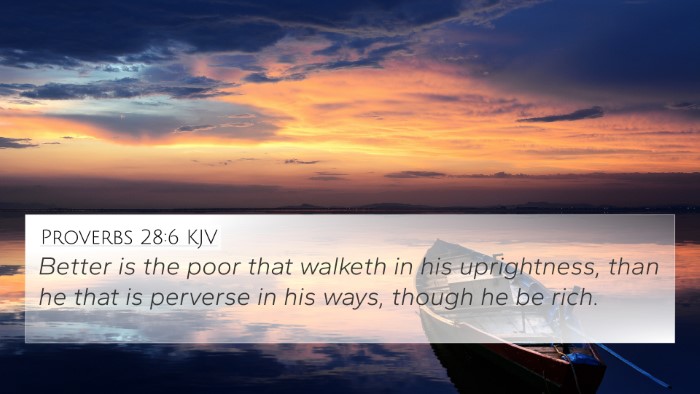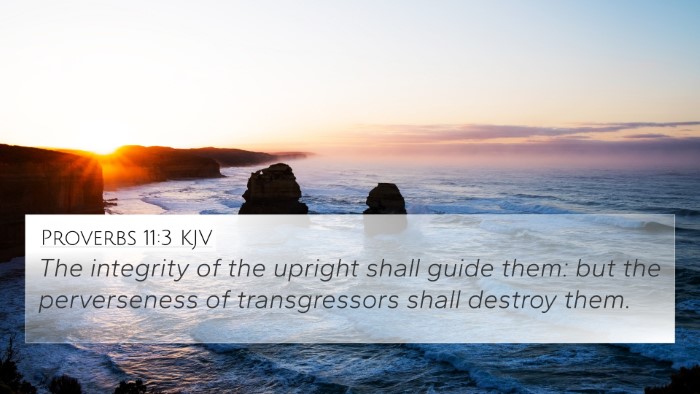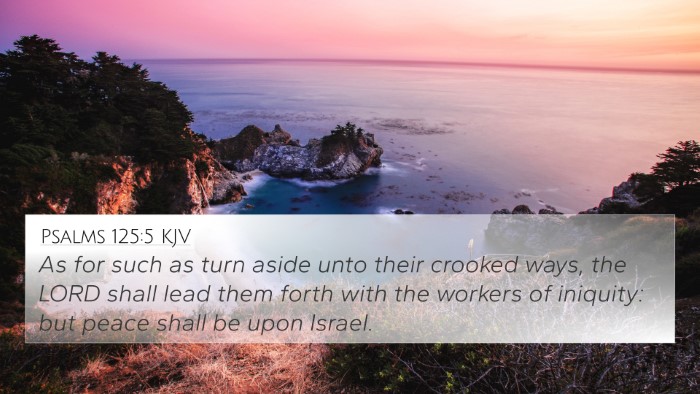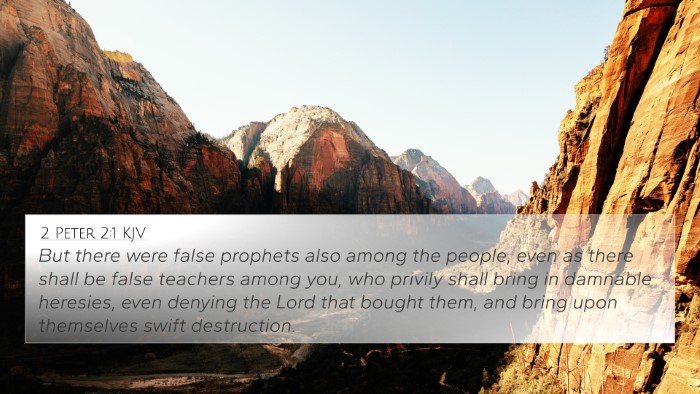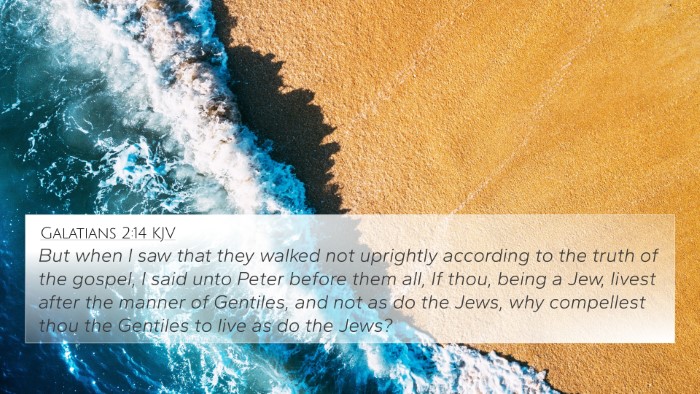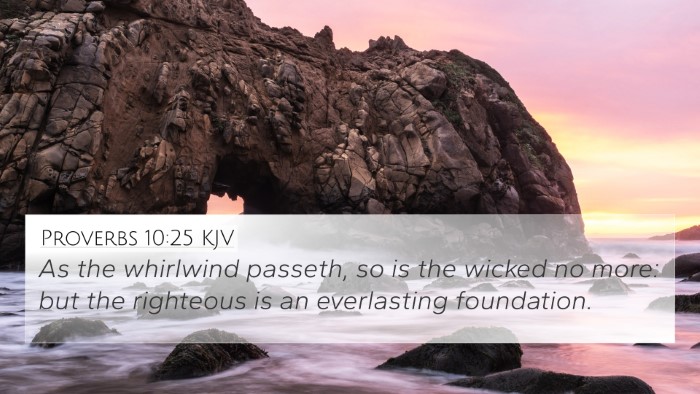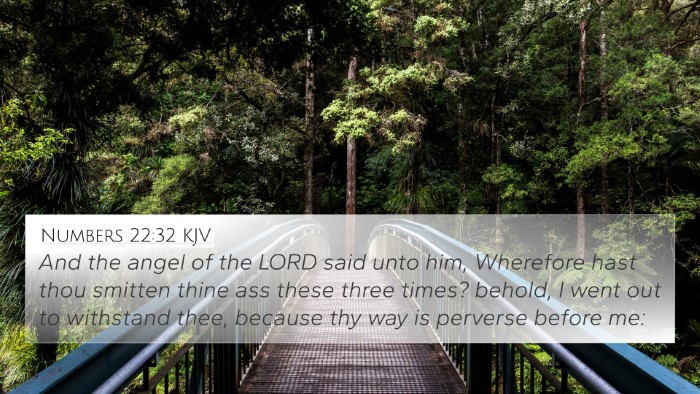Understanding Proverbs 28:18
Proverbs 28:18 states, "Whoso walketh uprightly shall be saved: but he that is perverse in his ways shall fall." This verse highlights the dichotomy between the righteous and the wicked, emphasizing the importance of integrity and moral uprightness.
Insights from Public Domain Commentaries
This verse can be deeply understood by considering the insights gathered from notable public domain commentaries:
-
Matthew Henry:
Henry emphasizes that walking uprightly is a pathway to salvation, signifying safety and preservation. Righteousness leads to divine protection, while wickedness ultimately results in downfall. The perverse are likened to those who choose a path that leads away from God, making them vulnerable to calamity.
-
Albert Barnes:
Barnes interprets "walking uprightly" as living a life of integrity and moral adherence. He suggests that such individuals can expect God's saving grace, as their commitment to righteousness secures protection. Conversely, those who act with perversity are destined for ruin, reinforcing the concept of divine justice.
-
Adam Clarke:
Clarke focuses on the consequences of both righteousness and wickedness. He elaborates that the phrase "shall be saved" signifies more than mere physical safety; it implies spiritual preservation. The opposite fate awaits the perverse, marking a clear distinction in outcomes based on one's moral choices.
Thematic Connections with Other Bible Verses
Proverbs 28:18 connects with numerous other scriptures, offering a rich tapestry of biblical themes, particularly the contrast between righteousness and wickedness, accountability, and divine judgment. Here are some notable cross-references:
- Psalm 1:6: "For the LORD knows the way of the righteous, but the way of the wicked will perish." This verse affirms God's knowledge and favor towards the righteous, paralleling the theme of observed outcomes based on one’s life choices.
- Romans 6:16: "Do you not know that to whom you present yourselves slaves to obey, you are that one’s slaves whom you obey, whether of sin leading to death, or of obedience leading to righteousness?" This reinforces the concept of choice leading to corresponding results, akin to Proverbs 28:18.
- Proverbs 11:3: "The integrity of the upright will guide them, but the perversity of the unfaithful will destroy them." This closely mirrors the essence of upright walking leading to salvation, as outlined in the verse under discussion.
- Matthew 7:13-14: "Enter by the narrow gate; for wide is the gate and broad is the way that leads to destruction, and there are many who go in by it." The contrast between paths reflects the blessed state of the upright versus the fate of the perverse.
- Galatians 6:7: "Do not be deceived: God is not mocked; for whatever a man sows, that he will also reap." This reflects the natural consequences of one’s actions, supporting the message of divine justice found in Proverbs 28:18.
- Proverbs 12:21: "No grave trouble will overtake the righteous, but the wicked shall be filled with evil." This passage emphasizes the protective nature of righteousness.
- 1 Peter 3:12: "For the eyes of the Lord are on the righteous, and His ears are open to their prayers; but the face of the Lord is against those who do evil." It speaks of the divine favor resting upon the upright and the judgment against the perverse.
Practical Applications
How can we apply the teachings of Proverbs 28:18 in our lives? Here are some reflections:
- Moral Integrity: Emphasize integrity in all dealings. This verse encourages believers to emulate those who walk uprightly, reinforcing the call to live by God's standards.
- Seeking Salvation: Understand that salvation is deeply connected to one's lifestyle. Those who strive for righteousness can find confidence in God's protection.
- Avoiding Perverse Paths: Recognize the dangers of moral corruption. The verse serves as a warning to shun paths contrary to God’s laws.
Cross-Referencing Biblical Texts
The practice of cross-referencing biblical texts allows for a deeper understanding of biblical doctrines and themes. Below are tools and methods you can utilize:
- Bible Concordance: Use a concordance to find related verses and understand thematic connections.
- Bible Cross-Reference Guide: Engage with guides that organize scriptures thematically, allowing for comparative analysis of similar verses.
- Bible Chain References: Follow chains of correlated verses that reinforce biblical themes.
- Cross-Referencing Bible Study Methods: Incorporate methods that facilitate interactive and comparative studies of scriptures across both the Old and New Testaments.
- Detailed Cross-References: Analyze the depth of connections among various books and letters in the Bible, providing a comprehensive view of scriptural teachings.
Conclusion
Proverbs 28:18 serves as a vital reminder of the consequences of our moral choices. It challenges us to strive for integrity, linking our actions with the outcomes ordained by divine wisdom. Understanding this verse in conjunction with other scriptural references enhances our spiritual insight, enriching our faith and guiding our life’s journey.

